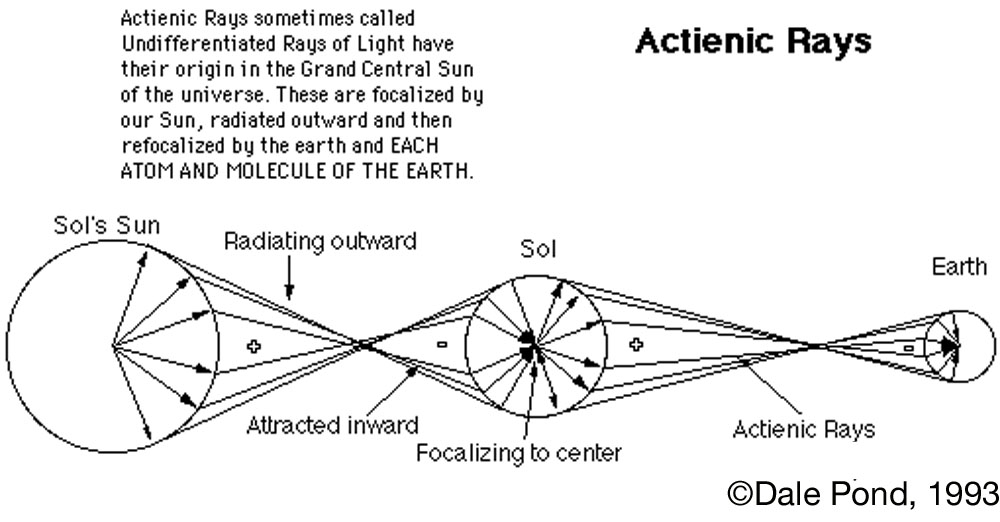Ac*tin"ic (#), a. Of or pertaining to actinism; as, actinic rays. Same as ACTIENIC RAYS.
The active rays emanating from the sun. [see Celestial Radiation]
|
All Mass is Controlled by Invisible Polarized Force in Space (courtesy University of Science and Philosophy)
(click to enlarge) |

Actienic Rays (click to enlarge) |
"The ultraviolet spectrum extends from approximately 380mu wavelength down to the softest x-rays. The longer ultraviolet rays, of vital importance for organisms, are often called actinic rays." [A Newly Discovered Law of Physics]
Electromagnetic radiation, such as x-rays or ultraviolet light, that can produce an image on a photographic emulsion.
"The sun during the period between eleven or eleven-thirty and two o'clock carries too GREAT a quantity of the actinic rays that make for destructive force to the superficial circulation." [Cayce (934-2)]
"Terrestrial magnetism is the earth's Electricity. The atmospheric vapors of the earth absorb the greater part of the calorific rays, and the actinic rays pass almost entirely into the earth; the former become charged with the positive, and the latter with the negative force; and thus the negative becomes characteristic of the earth, and the positive of the air. Then the rain falls and the hail and the snow, bearing the positive with them; which, upon entering the earth, is compelled to come into a state of Harmony with the earth's negative; the two poles acting in equilibrium constitute magnetism. Hence the earth itself becomes a powerful magnet; and everything earthly partakes of its nature, in some degree." [What Electricity Is - Bloomfield Moore]
Actinism
Ac"tin*ism (#), n. Gr. , ray. The property of radiant energy (found chiefly in solar or electric light) by which chemical changes are produced, as in photography.
See Also
Blue
Celestial Radiation
Chemism
Dissociation
infra-violet
Law of Oscillating Atoms
Light
Ultraviolet
Violet
